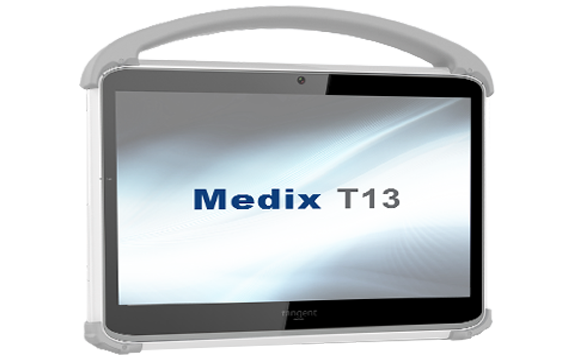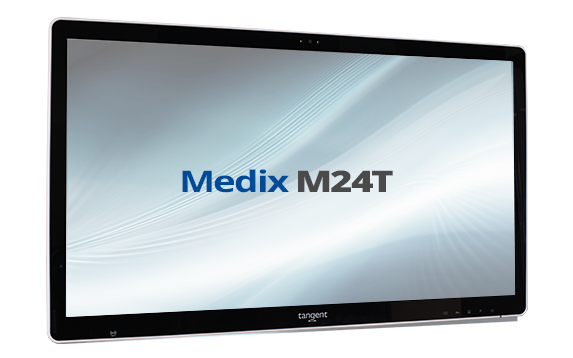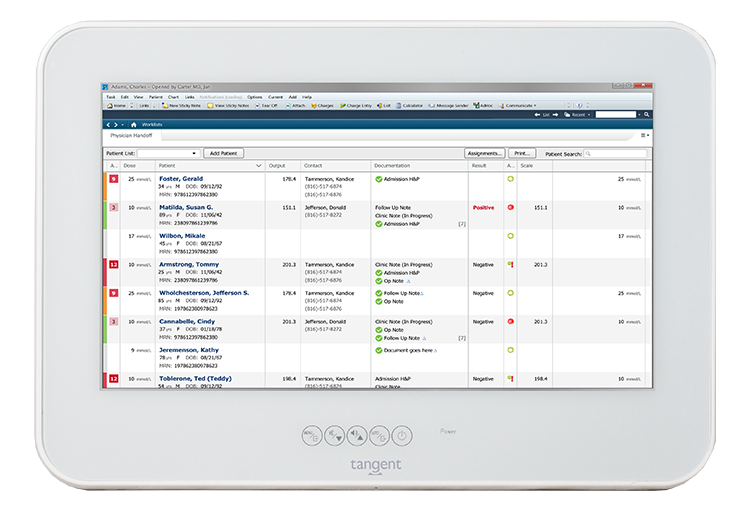There’s no doubt that medical grade computers have helped hospitals and other medical institutions in unimaginable ways. But what exactly is a medical grade computer, and do they live up to the hype surrounding them? In short, there are no requirements for a computer to be labelled as a medical grade computer, however there are some standards that have been widely accepted by suppliers, buyers, and regulators. Ensuring that your medical institution has medical grade computers that not only meet these standards, but surpasses them is paramount to supplying quality care to patients and driving down costs.
Today’s medical grade computers meet certain regulatory guidelines in order to be placed in the medical setting, including CE, FCC class A and/or B, UL60601-1 and EN60601-1, and CDC guidelines. In tandem with these guidelines, other factors such as DICOM Support, antimicrobial casing, and HIPAA compliant electronic health record (EHR) support play into calling a computer a medical grade computer. These factors blend together to provide medical institutions with capabilities only medical grade computers can offer, a few are listed below.
EHR Accessibility
Quick access to patient’s records is key to quality patient care, and paper based health records are slow, inefficient, and can be easily damaged. Medical grade computers are HIPPA compliant, meaning that they are legally allowed to utilize EHR software. EHR software minimizes the risk of human error when creating health records, provide the fastest possible access to all aspects of a patient’s medical history, and do not require a massive filing system. In addition, the antimicrobial coatings of medical grade computers ensures that the spread of germs is far less likely than with paper-based records that get passed from hand-to-hand. For even quicker access, Medical Grade Tablets provide the same access to records as medical grade computers, and can be used on the go.

DICOM Support
Without accurate, color correct images on screen, doctors are prone to make easily avoidable mistakes while looking at x-rays or other medical scans. Medical grade computers with DICOM support continuously run small programs that compare how images are supposed to look with how they are being presented, and corrects the resulting image accordingly. DICOM supported Medical Grade Computers are a must-have in any diagnostic room where accurate diagnoses are required.

Antimicrobial Enclosures
As previously mentioned, medical grade computers have antimicrobial enclosures which inhibit the growth of bacteria, promoting a germ-free environment. Computers in the medical setting see a constant stream of new hands throughout the day, each pair carrying a new and distinct cocktail of bacteria. Normal computers would be a festering pool of bacteria in this environment, which is why having antimicrobial enclosures is so important. The Touch Screen Medical LCD Monitor from Tangent has this critical antimicrobial enclosure, allowing for various medical staff to access this panel without worry of spreading disease.

Medical grade computers are an essential tool for making your hospital a clean and efficient setting for patient care. Medical grade computers and peripherals from Tangent are a league above commercial computers, and ensure that your hospital is at the forefront of innovation.
